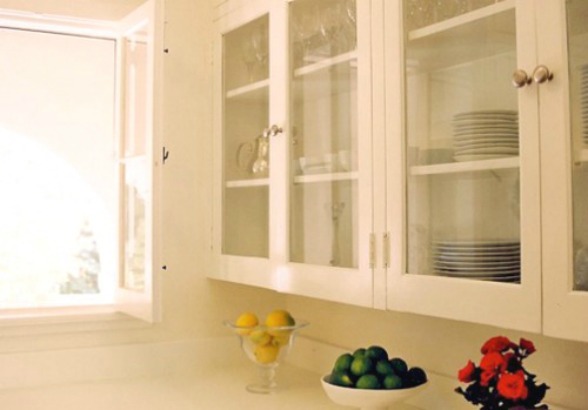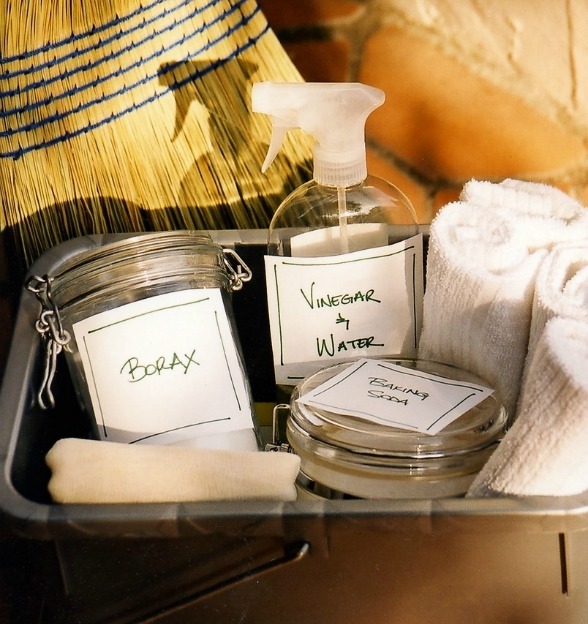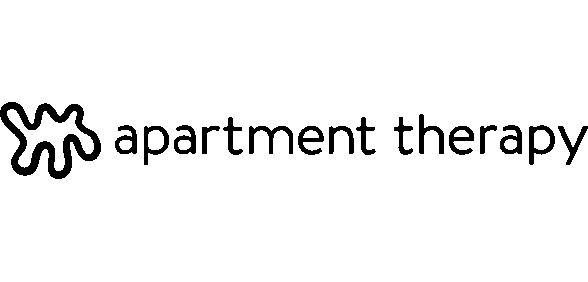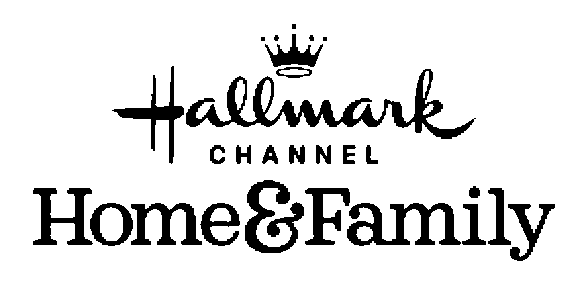For many years, my friends Laura Forbes Carlin and her sister Allison Forbes have inspired me to think about my home as a vehicle for self-transformation through their blog, Inspired Everyday Living, as well as their books and apps. I asked Laura and Allison if they would share with my readers and me some easy tips to help create a more natural, health-supportive environment in our homes. I especially love their “recipes” for DIY cleaning products!
Laura and Allison:
“If you’re like us, you do your best to take care of your health. We certainly try to eat well by choosing healthy, organic foods and we exercise as much as possible. And for many, being healthy usually stops with eating right and exercising. Creating a healthy home isn’t something most people consider, but it can be equally as important.
Our homes are like our third skin—our actual skin being first and clothes being second. What we have in our homes, how we clean them, and how we decorate are all decisions that affect our health on a daily basis. We need to take care of our homes just as we do our bodies. For example, inhaling fumes from common household cleaning products that contain toxic chemicals can be just as bad for you as eating fruits and vegetables that were sprayed with pesticides. We like to say that what we put in our homes can be just as important as what we put in our mouths!
A Dozen (Plus One) Simple Steps for a More Healthful Home:
1. Ventilate your home. Many of the products we use to clean and the materials we use to decorate and build contain toxic chemicals that off-gas and pollute the air we breathe. A study by the Environmental Protection Agency found that pollution inside a home could be two to five times higher than outside the home, even in large, industrialized cities. Opening windows creates a way for chemicals released from common household items to exit and fresh air to enter.
2. Use an air filter. Add HEPA/carbon filter to your heating, ventilation and air conditioning system, or placing standing filters in room where you spend a lot of time, such as bedrooms, to filter the air in your home. A HEPA filter will capture dust and other airborne particulates and Carbon will capture volatile organic compounds (VOCS).
3. Take off your shoes. Shoes track in dirt and pesticides from outside on to our floors. Remove your shoes before entering your home. Avoid using pesticides and insecticides in your own home and yard.
4. Choose a non- toxic dry cleaner, avoid dry cleaning or at least unwrap and air out your dry cleaning before putting it in a bedroom closet.
5. Avoid placing electronics in bedrooms. Limit your cell phone use. Also switch from cordless phones to landlines. Avoid placing computers, televisions, washing machines or other electrical devices in or near bedrooms. All of these things generate electric and magnetic fields, which can potentially cause healthy problems. Research is still ongoing, but it seems wise to avoid the risk
6. Limit your use of plastics for food and drinks. Some plastics leach harmful chemicals into our food and drinks. Use glass storage containers for food and stainless steel cookware and drinking bottles. Additionally, avoid heating food or liquids in plastic.
7. Choose non- toxic and natural materials to finish and furnish your home. Many paints and finishes we use to decorate give off toxic fumes known as volatile organic compounds (VOCs), which can be harmful. These chemicals can remain in the air even after the paint is dry. Low or No VOC paints are a healthier alternative to this problem. Invest in natural materials such as solid wood, untreated cotton, linen, wool, etc… Pressed wood, like particleboard or MDF, contains chemicals like formaldehyde that can off gas. You will spend almost a third of your life in bed, so a healthy, chemical-free bed is a good place to start. Next time you buy new bedding, look for organic, untreated cotton sheets, untreated wool pillows and a wool or latex mattress.
8. As often as possible choose organic pesticide-free food and filter your drinking water. Although water quality varies depending on where you live, tap water can contain a host of contaminants including chlorine, lead and organic material. Install filters in your kitchen for drinking water and in your shower for water used to bathe.
9. Use non-toxic body care products. Our skin is our largest organ and whatever we apply to our skin we absorb. Avoid chemical anti bacterial soaps- find soaps that are antibacterial from a natural source such as lavender.
10. Keep your home as dust-free as possible. Use a vacuum with a HEPA (high-efficiency particulate air) filter to capture airborne particles. Not only is dust an allergen, but chemicals tend to bind to dust.
11. Sunlight. Sunlight can uplift our spirits. It is also an effective way to cleanse linens and blankets killing dust mites. So open curtains and blinds during the day to let sunlight into your home and hang carpets, sheets and blankets in the sun occasionally.
12. An Organizational System. Stress negatively affects our health and lack of organization and clutter can contribute to stress. Create a peaceful sanctuary at home by getting organized and eliminating clutter.
Plus one:
Conventional household cleaning products contain harsh chemicals including ammonia and phenol, which can irritate your skin and lungs, and cause headaches. These products are also one of the leading causes of indoor air pollution. So instead of cleaning your home, you’re actually polluting the air you breathe!
Next time you walk into a room that has recently been cleaned with conventional cleaning products notice how your body reacts. If you take a deep breath do you cough or sneeze? Does the room smell fresh or does it smell more like chemicals? Although for years we associated that chemical smell with cleanliness, once we switched to all natural cleaning products, we could never go back.
Most natural cleaning products are biodegradable, nontoxic, chlorine-free, and petroleum-free – all good for the planet, but also very good for you. To avoid exposing yourself to hazardous pollutants, look for non-toxic, environmentally safe household cleaning products, which clean while being gentler on your body. Natural cleaning products are now widely available in stores, but you can also make your own!
Recipe for making your own cleaning products:
Windows: Mix 1/4 cup white vinegar with 2 cups water in a spray bottle. Shake before use.
Wood surfaces and floors: Mix 1/4 cup white vinegar to a gallon of water with a few drops of lemon essential oil.
Scouring powder: Sprinkle baking soda on surface and scrub with a damp sponge.
Air Freshener: Open the windows! Opening windows lets fresh air enter and stagnant, polluted air exit. But if you also want a little extra boost try essential oils mixed with water in a spray can. Use about one cup of water with 10 drops of essential oils. Shake before use.
Laundry spot remover: Soak stains in white vinegar and warm water. The more stubborn the stain, the more vinegar you should use.
Cleaning with all natural ingredients makes the process so much more enjoyable and healthier! Once you experience the wonderful fresh scents of all natural cleaning products, you’ll never associate that chemical odor with “clean” again!”
If you have any “recipes” for DIY cleaning products or favorite tips for creating a more natural home, please share!














My mother used only natural cleaning products all her life, even when the commercial cleaners were the thing to buy and use. Baking soda, vinegar, and lemon juice were the three main items on her list for cleaning almost anything. Nice to hear your comments on the same. Keep up the great information!
I’m a big fan of getting back to basics. Thanks, Patricia!
I know some pros and cons and I gotta admit, the clean factor is attractive but the waste scares me, (considering the long term IS important!) as does the enormity of the results of error or sabotage.
Love this!!!! So informative……
Excellent article! Very informative. Thanks very much for sharing this valuable information.
Laura and Allison are the best. Glad you enjoyed it, Sally Jo!
Great article! If your shower head has a lot of water deposit build up that clogs the holes, you can also soak them in vinegar overnight and they will be spotless and unclogged in the morning. Oh yeah, and don’t forget to ditch your non stick pans, as they emit major toxins that may kill pet birds in your house. Could you please talk about water filters sometime in the future? Reverse osmosis,shower filters, etc?
Science news about metal water bottles “BPA free or not” http://www.sciencenews.org/view/generic/id/332291/title/Metal_water_bottles_may_leach_BPA
What plastics leach and which do not
http://downtoearthdesigner.com/2009/05/07/what-plastic-is-what/
Hi Jeremy, I’m so glad you stopped by. You are a wealth of information! I will definitely put a post about water filters on the to-do list. Thanks!
These excellent,valuable ideas to enhance and protect our outer environment are a wonderful complement to all the important nutritional information and recipes contained on your website which enhance and protect our inner “environment”. Thank you!
How eloquent, Lois. Thank you!
Well, I don’t know anyone who thinks using natural deodorant is going to save the world. I just use it because I believe it to be unhealthy to inhibit sweating. Plus, the natural stuff doesn’t ruin your shirts. We are exposed to so many chemicals we don’t know about all the time, it would be impossible to get away from them all. However, why not avoid the ones you do know about if you can?Scott, I can appreciate your point that we should be more worried about bigger issues. Maybe if we could get China & Mexico (and everyone else!) to decrease their pollution in the first place, we wouldn’t have to worry about so many chemicals.On the other hand if more people start buying these natural alternatives, there will be more available and maybe it can decrease the level of chemical products being produced and therefore decrease the amount of waste produced from those chemicals…? Every little action makes a difference. It’s probably that kind of thinking (that small actions don’t make a difference) that got us to where we are.Report this comment as spam or abuse